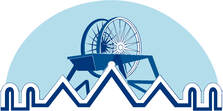Phonics and Reading at Donisthorpe Primary SchoolPhonics- Sounds Write |
|
At Donisthorpe, we use the Sounds-Write phonics programme to teach our children to read, spell and write. Sounds-Write is effective in teaching pupils to read, spell and write because it starts from what all children know from a very early age – the sounds of their own language. From there, it takes them in carefully sequenced, incremental steps and teaches them how each of the 44 or so sounds in the English language can be spelt.
Our approach teaches the conceptual understanding needed to become an effective reader:
Reading and spelling also requires expertise in the skills necessary to make use of the alphabet code and pupils need to be able to:
|
Presentation for parents- Phonics and Reading
Your browser does not support viewing this document. Click here to download the document.
|
 | Website by Primaryworld
| Website by Primaryworld 
